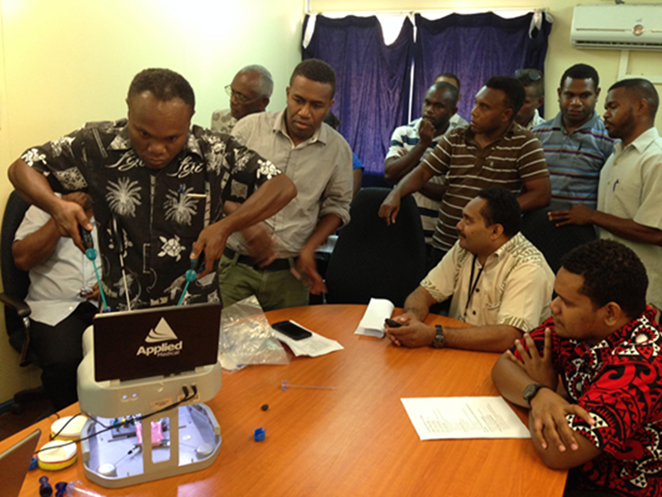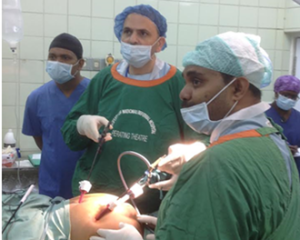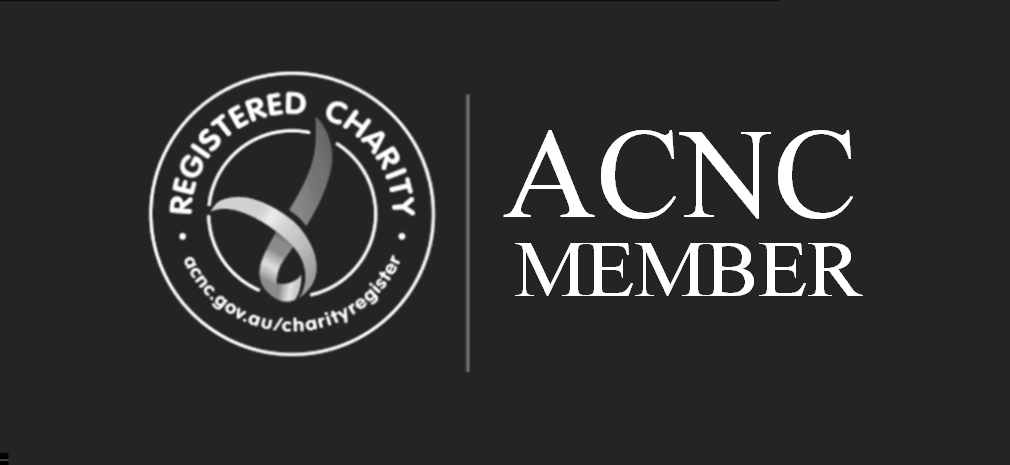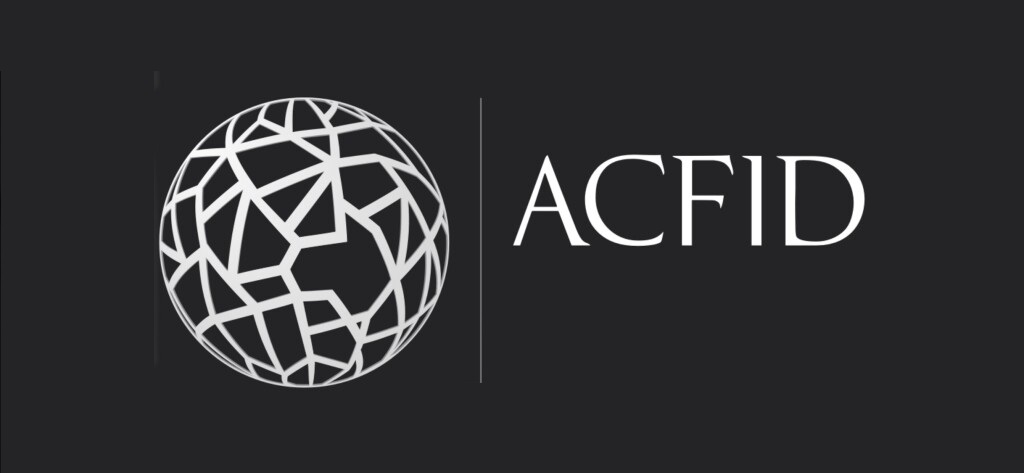
Image: Surgical Registrar Dr Clay Siosi and other surgical registrars practicing laparoscopic surgery on the Applied® simulator at National Referral Hospital (NRH) Laparoscopic Workshop in Honiara, January 2017.
National Referral Hospital (NRH), the main referral hospital for the Solomon Islands, located in the country’s capital city Honiara, performed its first laparoscopic (key-hole) surgery in January 2017.
Although more than fifty years since laparoscopic surgery first began worldwide, surgeons in the Solomon Islands have made up for lost time, rapidly acquiring these skills thanks to a team of volunteer surgeons and anaesthetists under the umbrella charity “DAISI” (Doctors Assisting In Solomon Islands), with a second and third DAISI laparoscopic workshop at NRH conducted in April and June 2017. These three workshops involved 25 volunteer specialist surgeons and anaesthetist’s from Australia 4 registrars and 6 nurses.
Dr Scott Siota, a general surgeon from NRH, and his team of registrars are now doing diagnostic laparoscopic and laparoscopic appendicectomy independently.
“We are so excited to be able to offer something to our people that for many years just was not available due
to lack of resources” said local Honiara surgeon Dr Scott Siota.
The acquisition of laparoscopic equipment was due to the generosity of a number of hospitals, MedEarth and Olympus, and was shipped over to the Solomon Islands thanks to the support of Rotary and DAISI.
NRH is the only tertiary hospital in the country, located in the capital city Honiara. It receives transfers and admissions from almost one thousand islands across the nine provinces that make up the Solomon Islands. With no CT scanner in the country, diagnostic laparoscopy, now available at NRH, makes sorting out the “undifferentiated abdominal pain” much easier, allowing quicker diagnosis and treatment, and discharge from what is already an overly burdened hospital.
In the West, laparoscopic surgery typically involves the use of disposable single-use equipment. This reliance on disposables is however problematic for the Solomon Islands, being expensive, and ugly with these disposables often ending up as land-fill. Therefore the introduction of new technology and procedures needs to be culturally appropriate, and one of the main objectives of DAISI, is to promote sustainability and provide re-usable instruments to avoid a reliance on disposables.
Laparoscopic surgery has a difficult learning curve. A systematic approach is required for teaching safe laparoscopic surgical skills, with ongoing teaching sessions scheduled to occur on a regular basis, and organised totally by volunteers. Teaching also needs to include dedicated nursing staff, to ensure the necessary equipment is sterilised and cared for and stored appropriately.

Image: DAISI volunteer and colorectal surgeon Dr Gary McKay & Honiara surgeon Dr Douglas Pikacha perform the first laparoscopic cholecystectomy at National Referral Hospital (NRH) in January 2017.
Fortunately, due to the incredible generosity of so many individuals and organisations, DAISI has been able to send three shipping containers in the past two years with much needed medical equipment.
 Image: DAISI volunteer hepatobiliary surgeon a/Prof Charbel Sandroussi & local surgeon Dr Scott Siota doing laparoscopic cholecystectomy at National Referral Hospital (NRH) in April 2017.
Image: DAISI volunteer hepatobiliary surgeon a/Prof Charbel Sandroussi & local surgeon Dr Scott Siota doing laparoscopic cholecystectomy at National Referral Hospital (NRH) in April 2017.
This year alone over 83 specialists have volunteered in the Solomon Islands with DAISI. “It never ceases to amaze me how much generosity there is amongst my surgical and anaesthetic colleagues. The trick is tapping into and directing this generosity” says Dr Gary McKay, founder of DAISI.
With only five local surgeons serving the entire population of 580,000 in the Solomon Islands, the surgical caseload is often overwhelming. This represents a one hundred fold difference to Australia. The per capita income is also one hundredth that of Australia.
The Solomon Islands is currently facing a turning point in its history, with the recent departure of the Regional Assistance Mission to the Solomon Islands (RAMSI). Solomon Island’s strive for self-determination must include a commitment to improving the medical workforce in the Solomon Islands. Overseas training of surgeons and anaesthetists is expensive and fraught with failure. Unfortunately the “brain drain” often results in overseas trained doctors never returning to the Solomon Islands. With a huge number of recent medical graduates just returning to The Solomon Islands from medical training in Cuba, the need is now greater than ever to provide post-graduate specialist training within the Solomon Islands. DAISI is very excited to be involved in this process.
Article by Dr Sepehr Lajevardi who is currently a plastics registrar and Treasurer of DAISI.


